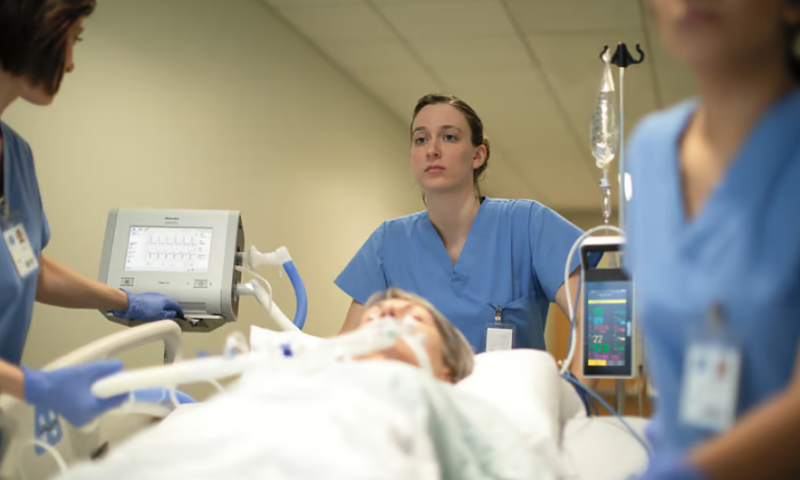As of last month, according to its second-quarter earnings report, Philips has produced around 99% of the repair kits and replacement devices needed to remediate its massive respiratory device recall, which has stretched since the spring of 2021 to cover approximately 5.5 million devices around the world.
But just as those remediation efforts wind down, the company is now facing yet another Class I recall of some of its respiratory support machines.
According to an FDA notice Monday, the latest recall centers on several models of Philips’ Trilogy ventilators, including the Evo, Evo O2, EV300 and Evo Universal—none of which were included in the larger, still-ongoing recall, which mainly covers CPAP and BiPAP machines, as well as some of the company’s other ventilator models.
Just over 120,000 Trilogy ventilators distributed around the world between March 2019 and March of this year are included in the newer recall, with more than half of them sold in the U.S.
The machines provide mechanical breathing support to both children and adults. Most of them are indicated for use in clinical settings, though the Trilogy Evo and EV300 models can also be used in a patient’s own home.
Philips began the recall at the end of March, after discovering that dust and dirt had gotten into the air paths of some of the devices. If those environmental contaminants are allowed to keep building up inside the breathing machines, they could eventually block the air vents, preventing the devices from delivering their intended respiratory support.
From there, if the ventilator isn’t providing the correct amount of air pressure or volume, patients may receive too little oxygen while carbon dioxide builds up, potentially leading to serious injuries or death. To date, per the FDA’s notice, Philips has received a total of 542 complaints related to the issue, including reports of two injuries and one patient death.
In a statement sent to Fierce Medtech, the company said the reported death “cannot currently be attributed to this issue.”
“The device related to the patient death report was returned to Philips for investigation, without filters installed, and with severe contamination present. The device operated as intended where numerous high priority alarms were confirmed,” the statement continued.
After beginning the recall in late March and notifying the FDA and its healthcare provider customers shortly after, Philips kicked off efforts to remediate the affected ventilators in May.
In the meantime, to prevent contaminants from building up inside the machines, Philips has advised users of the recalled devices to always use—and regularly replace—company-approved particulate filters to keep most particles from entering the machinery at all. They should also keep an eye out for any system alarms that would indicate an issue with the ventilator’s mechanism, and they may want to keep a backup ventilator or other alternative breathing support tools on hand in case the issue can’t be resolved.
This is far from the only Class I recall to hit Philips’ Respironics division since the far-reaching 2021 recall began.
In fact, the Trilogy EV300, Evo O2 and Evo Universal were the subject of another safety event earlier this year. In that case, more than 62,000 of the devices were found to be at risk of delivering lower-than-needed amounts of oxygen during high-concentration therapy sessions.
Also in the last year, Philips has found itself re-recalling many of the machines that it’s already repaired or replaced in the wake of the 2021 recall. In December, the Dutch medtech giant warned that more than 21,000 ventilators that were sold under the Trilogy 100 and 200 and Garbin Plus names and repaired between March and September of last year could still contain remnants of the polyester-based polyurethane foam at the heart of the original recall.
Just a few months later, Philips re-recalled even more already-repaired devices—this time, 1,200 DreamStation CPAP and BiPAP machines that the company found were at risk of failing to deliver the correct respiratory therapy.

